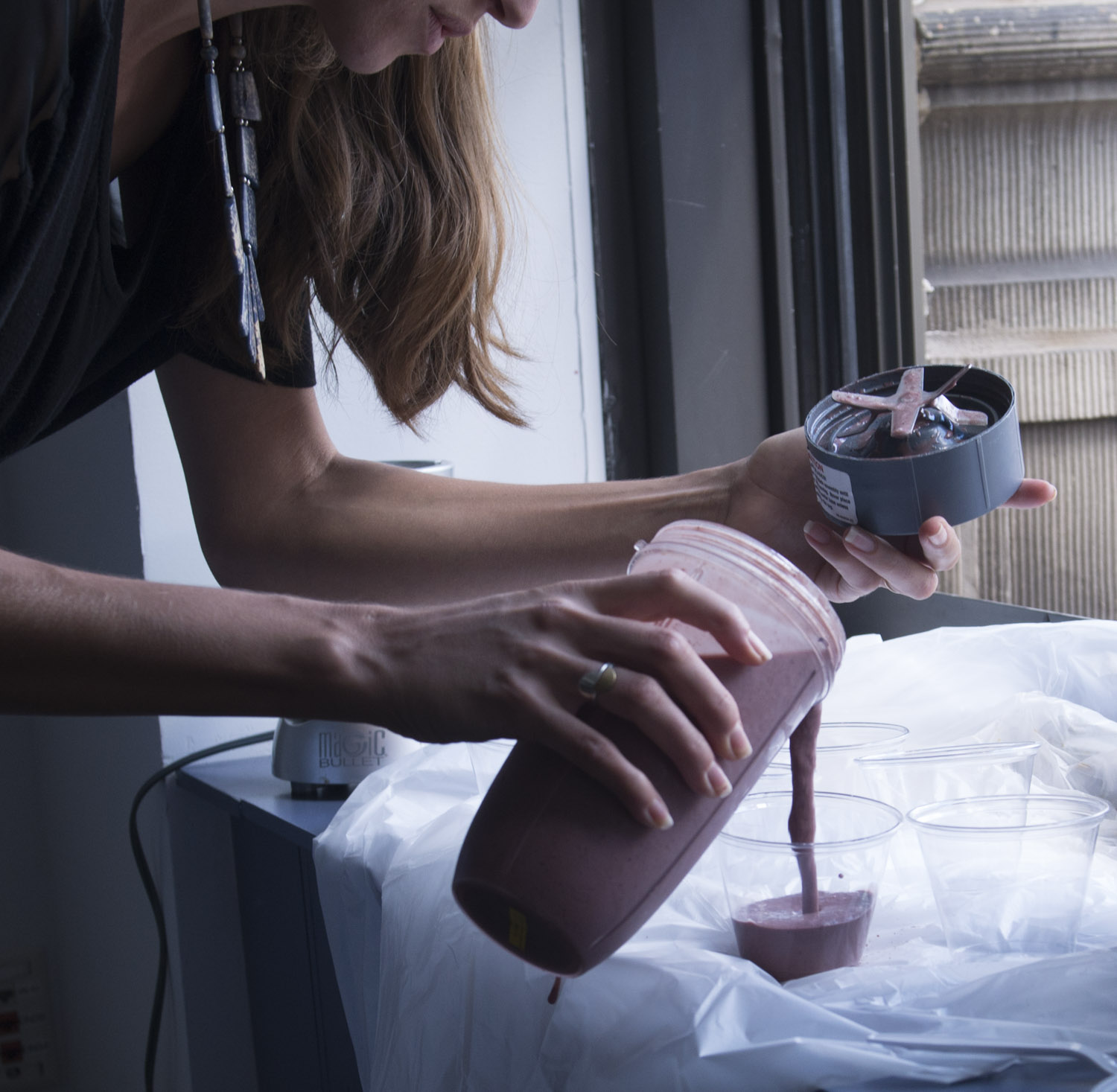I love orange food. Not just for the colour itself but also for the healthy carotenoids that contribute these golden hues. Carotenoids are one of the 7 Foods That Pause Aging…
Read moreNatural Sleep Remedies That Really Work
Did you know that your brain has its own nocturnal cleaning service? Researchers have found that a plumbing-like set-up, called the glymphatic system opens up between the brain cells at night and literally sweeps and flushes out toxic molecules involved in neurodegenerative disorders like Alzheimer’s disease
Read moreAnxiety, Inflammation, PMS, Migranes, Sleeplessness? Maybe you're just low in Magnesium!
Magnesium is an underrated nutrient involved in over 600 enzymatic processes in the body including nerve transmission and muscle contraction. You need to be getting enough of it.
Read moreThe Reset salad
This is my go-to fix if I'm feeling less good and more gross (toxic, lethargic, bloated) and HUNGRY - a combination of sensations that usually come about after a particularly feast-focused weekend or a vacation with friends...
Read moreWhat's the best PROTEIN POWDER for you?
The world is waking up to the power of dietary protein.
Whether you want to manage your weight, curb cravings, have better energy levels or do your part to prevent carb-driven metabolic disorders like diabetes, Alzheimer’s, and heart disease, eating enough protein throughout the day is where to start.
What is a protein?
Proteins are made of tiny molecules called amino acids that form the building blocks of just about everything in our bodies. Muscles, skin, hair, hormones, enzymes, neurotransmitters (brain messengers) - all rely on adequate protein in the diet.
Eggs, Fish, Meat, Lentils, Beans, Seeds, Nuts, Natto, Kefir, Raw Milk, Raw Cheese are some good dietary sources.
From a digestion and structural point of view, proteins are more complex and take longer to be broken down than carbohydrates, so eating protein keeps you fuller for longer, fills you up faster, slows down the release of glucose into the bloodstream, and prevents the energy dips that we get from eating high-carb (or carb-only) meals (read: cereal and milk, a sandwich, a fruit juice, a store-bought 'health' bar).
One of the first things I get my clients to do when I start working with them, is to make (and enjoy) plant-based protein smoothies. It's a very quick, easy and delicious way to get a LOT of nutrients into your body with minimal effort.
I always add whole -food proteins like nuts and seeds but sometimes you need a little extra protein, which is where shakes come in.
Not all protein powders are created equal. Here's a breakdown of the different types out there - find your best fit:
Blueberry spinach almond butter smoothies. Photographed by Aviva Klein in New York.
Whey Protein
- Source: Cow’s Milk. Whey is one of two protein components in cow’s milk (casein is the other one)
- Vegan?: No
- Main pro: Highly bioavailable, meaning it can be easily used by your body
- Main con: Cow’s milk is a common gut irritant that causes low grade systemic inflammation for many people without them ever realizing it (until they stop eating and drinking dairy for a while.)
Good for you if:
- You want more lean muscle mass and work out a lot
- You tolerate dairy well
- You get it from a good source – organic, grass-fed, minimal ingredients, no thickeners, no sweeteners.
Pea Protein
- Source: Plants; usually yellow peas.
- Vegan?: Yes
- Main pro: Hypoallergenic
- Main con: Does not contain the full spectrum of amino acids (it’s missing cysteine)
Good for you if:
- You’re vegan
- You mix it into other blends of protein (e.g. hemp or rice) to get all the necessary amino acids
- You tolerate legumes
- You get it from a good source – organic, minimal ingredients, no thickeners, no sweeteners.
Rice Protein
- Source: Like the name says, rice
- Vegan?: Yes
- Main pro: Hypoallergenic, plus an extra dose of B vitamins and fiber
- Main con: Contains a small amount of carbs (good for post-workout recovery, though)
Good for you if:
- You’re vegan
- You’re not paleo
- You mix it into other blends of protein (e.g. hemp or pea) or nuts and seeds to get all the essential amino acids
- You tolerate grains
- You get it from a good source – organic, minimal ingredients, no thickeners, no sweeteners.
Hemp Protein
- Source: Hemp seeds (from the cannabis plant)
- Vegan?: Yes
- Main pro: Hypoallergenic, complete source of protein (has all the 9 essential amino acids), and extra dose of omegas.
- Main con: The least bioavailable of the lot, meaning your body doesn’t absorb and use it as well as other sources
Good for you if:
- You’re vegan
- You’re paleo
- You don’t mind spending a bit extra to get the good stuff
- You get it from a good, high-quality source – organic, minimal ingredients, no thickeners, no sweeteners.
Collagen
- Source: Animal connective tissue
- Vegan?: No
- Main pro: Can be good for skin and joint health.
- Main con: Being a beauty product, a lot of the hype is faddy and many label promises are not proven.
Good for you if:
- You’re not vegan
- You’re paleo
- You don’t mind spending a bit extra to get the good stuff
- You get it from a good, high-quality source – organic, grass-fed, minimal ingredients, no thickeners, no sweeteners.
Spirulina
- Source: Blue-green algae
- Vegan?: Yes
- Main pro: Complete range of amino acids, plus extra minerals and antioxidants.
- Main con: Hard to know where it comes from
Good for you if:
- You get it from a good, high-quality source – organic, minimal ingredients, no thickeners, no sweeteners.
- You tolerate chlorophyll-containing drinks
- You’re paleo
- You’re vegan
WINNER?
In my view, a mix of rice and pea protein is the winning combo. Together these two sources make up the full spectrum of essential amino acids, while being vegan, and free of common irritants like casein, lactose, gluten, or soy.
Bioavailaibiltiy is also an important consideration. Most plant-based protein powders are only about 30-50% bioavailable, at best. Meaning that your body can only absorb and utilize about half the protein content. This is why it's important to keep your diet varied and not to rely only on on shakes.
I'm here to help you navigate your personal nutrition. Let me know if you have questions!
My beef with MILK... & your 6 TOP TIPS to surviving life after dairy.
Personally I never caught on to the idea of ingesting lukewarm white liquid that spurts form a cow's nips.
Moo juice is nutritious though. Here's what you need to know about it.
Read more








